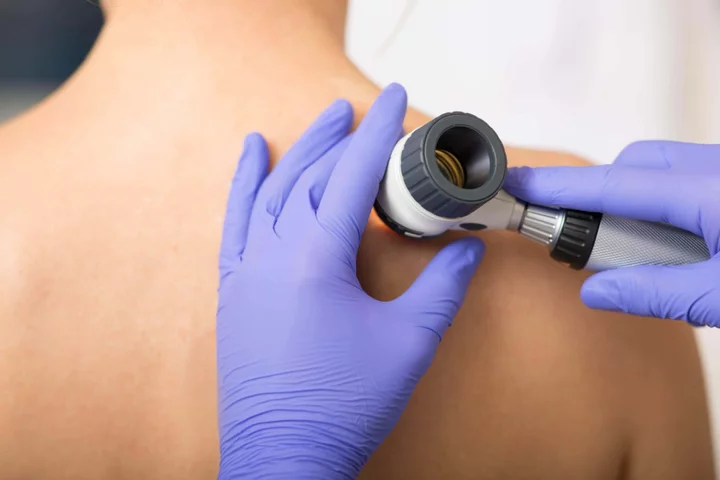
Skin cancer cases reach record high – how to spot the signs
Skin cancer diagnoses in the UK across all ages, have reached a record high of 17,500 every year, according to Cancer Research. This growth shows no sign of stopping. Melanoma skin cancer cases could increase by around 50% over the next 20 years, hitting a record 26,500 a year by 2040, the charity says. So, what should we be looking out for? What are the visible signs? “Visible signs of skin cancer include lumps or patches on the skin, changes in the appearance of moles, or the development of new growths on the skin,” says Catherine Borysiewicz, a dermatologist at King Edward VII’s Hospital, London. “Look for any moles or spots that exhibit irregular borders, uneven colouration, or are larger than the size of a pencil eraser. Additionally, any sores that do not heal or lesions that bleed, itch, or change in size should be monitored closely.” You may be worried a rash could indicate skin cancer, but they are normally safe. “Rashes can be caused by numerous factors, including allergies, infections, autoimmune diseases, or contact with irritants. “Some non-cancerous skin conditions may mimic the appearance of certain types of skin cancer, such as eczema or psoriasis. A dermatologist can help differentiate between these conditions based on a thorough examination and, if necessary, additional diagnostic tests,” she explains. Should I be on the lookout more after sunburn? “Sunburn itself is a sign of skin damage caused by excessive exposure to UV radiation. While it does not directly indicate skin cancer, sunburn can increase your risk of developing skin cancer in the future. Therefore, it is important to be more vigilant and use sun protection measures, to minimise the risk of developing skin cancer later on,” says Borysiewicz. Would I be in pain? “Persistent pain in a skin lesion or an area of the skin can be a potential indicator of skin cancer. Pain associated with skin cancer is typically not the initial symptom, but it can occur as the cancer progresses. If you experience unexplained and prolonged pain in a specific skin area, especially if accompanied by other suspicious signs, it is advisable to consult a dermatologist for further evaluation,” says Borysiewicz. Will I feel unwell? “Skin cancer is primarily diagnosed based on visible changes in the skin. However, it’s important to note that advanced stages of skin cancer may cause systemic symptoms, such as fatigue or weight loss,” she explains. When should I get something checked? “It is essential to get any skin concern checked by a dermatologist if you notice any suspicious changes in your skin. This includes new or changing moles, unusual growths, sores that don’t heal, or any other worrisome skin changes,” she stresses. “Early detection is crucial in successfully treating skin cancer, so it’s better to be cautious and have any concerning skin abnormalities evaluated by a doctor as soon as possible,” Borysiewicz explains. .
2023-07-07 16:54
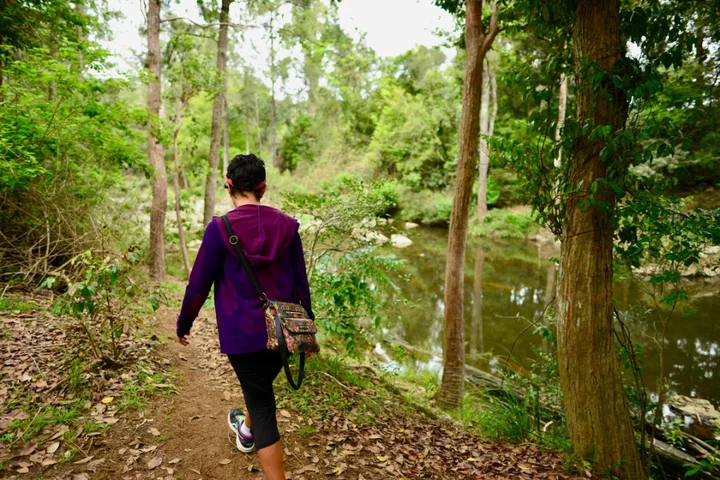
Why it’s so good to do activities alone this summer
I do a lot of activities alone. Not because I don’t have any friends or family who love me and share similar interests, but I’ve grown to enjoy my own company and stepping outside of my comfort zone. The first time I took the plunge was when I went to the Apollo Theatre in Victoria, London, to watch the iconic Wicked The Musical alone for my 21st birthday. I hated it and silently cried throughout the interval, watching people converse with their loved ones. But it taught me several lessons and I have since stopped thinking twice about going anywhere alone. Now, you’d happily find me at the cinema, gig, concert, restaurant, on a solo travel trip and yes, even the theatre, alone. For those thinking about it, but still need convincing, here are some of the reasons why you should try doing activities alone this summer. Increased independence and confidence Apart from learning to appreciate the peace that comes from silence, you could also start learning a new skill or invest in a talent, such as playing an instrument or knitting. “Trying out activities alone can boost your independence and confidence,” said Natalie Viglione, a life, business and spiritual coach who runs Team Gu and the Disrupt Now Program, which helps people and their businesses. “It’s an opportunity to rely on your own judgment and decision-making skills, which can make you feel empowered and more self-assured.” You learn more about yourself It may be easier to coast through life, but taking the time to be self-reflective to learn more about who you are – your likes, dislikes, values and how you are in uncomfortable situations – will provide you with great insight, direction and depth. You might discover new things and experience personal growth along the way too. “The lessons are endless, because the opportunities are too,” said Radha Vyas, CEO and co-founder of group adventure travel company Flash Pack. “Outside of the safety net of your friends and family, you are more open to meeting others, making new friends and creating new connections. The fear of loneliness dissipates almost immediately. Taking on new adventures and experiencing new things [like] solo travelling is life-affirming, and also brings with it a triumphant sense of achievement.” Making new friends Making new friends as an adult isn’t straightforward. But doing activities alone will provide you with countless opportunities to meet people who have similar interests as you. Using solo travelling as an example, Vyas said: “People often feel nervous to travel alone for fear they will be lonely or feel isolated. I’ve travelled solo a lot and have met others at every stage of my journey. “In fact, it’s often hard to have time alone. I think that’s the beauty of travelling solo – you are more open to meeting others and, as a result, wonderful and interesting new friendships form.” Reduced stress and improved mental health There’s a difference between doing activities alone and being lonely. For Lowri-Dowthwaite Walsh, a senior lecturer in psychological interventions at University of Central Lancashire, some people may be more reluctant to spend time alone, because we are often told that we should be with other people. “We are social creatures and tend to crave companionship. We are also aware of negative messages and stereotypes around solitude,” said Walsh. “Some people feel a sense of loneliness when they are alone and may not spend a great deal of time in their own company. Introverted individuals may be more used to being alone than extroverts.” But Walsh goes on to explain that throughout the centuries many philosophers, artists, poets and spiritual leaders have advocated for solitude. “Spending time alone enables you to get to know yourself better. Being alone with one’s thoughts and feelings deepens the relationship with oneself. It also allows for more spiritual and philosophical reflection. Being alone in nature has also been shown to improve wellbeing.” Walsh recommends journaling as a good reflective activity that can be done alone with plenty of time and space. Going for a walk in nature, doing some crafting or painting are also valuable ways to spend time by yourself. Read More Charity boss speaks out over ‘traumatic’ encounter with royal aide Ukraine war’s heaviest fight rages in east - follow live How to make your summer tan last longer Why do I get sick when I go on holiday? As Katie Boulter takes Wimbledon by storm, we look at her best on-court fashion so far
2023-07-07 15:54
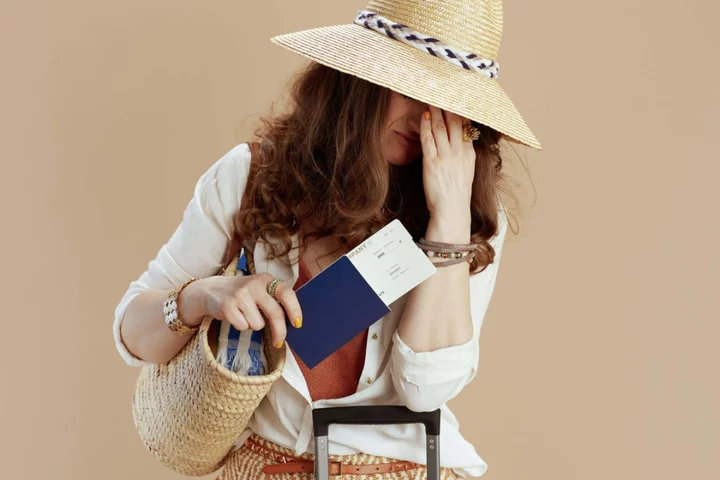
Why do I get sick when I go on holiday?
So you’ve been counting down to your holiday – when you’ll finally have the chance to step off the hamster wheel and relax. Except, no sooner have you checked in at your hotel than you find yourself reaching for the headache pills or tissues, as a niggling cold or migraine takes hold. Sound familiar? If it feels like you suddenly get unwell when you finally hit the pause button, you’re not imagining it – there’s even a medical term for it. The ‘let-down effect’ “This is known as the ‘let-down effect’,” says Dr Suhail Hussain, a personal physician and private home visiting GP. “When the body is used to functioning on high levels of [stress hormones] cortisol and adrenaline and they suddenly decrease, our immune system is exposed and then we’re prone to minor infections and excessive tiredness. “Pain and muscle aches also increase – adrenaline increases muscle tension, so imagine a rubber band always pulled tight, what happens when you let go? “There may also be a spike in mental health problems, such as acute anxiety and panic attacks. Flare-ups in pre-existing chronic conditions is also a common phenomenon, for example migraine and asthma attacks,” he adds. The ‘let-down effect’ can strike after a brief period of intense stress, such as after exams or completing a project, and after positive high-stress events, like planning a wedding. And for many people, it hits when you finally get to put down your to-do list and go on holiday. What’s the deal with stress hormones? Stress hormones serve an important purpose and we need them to function, so they’re not always bad news. “Basically, we are programmed to respond to danger – ‘fight or flight’ – so in stressful situations, there is an increase in levels of stress hormones adrenaline and cortisol,” Dr Hussain explains. “Together, these two hormones control mood, motivation and fear. In periods of stress or heightened anxiety, adrenaline levels rise – causing an overdrive of the sympathetic nervous system, resulting in racing pulse, high blood pressure, sweating, etc.” Stress hormones also play a role in regulating inflammation, metabolising nutrients, and aiding immune function, sleep and energy. But ideally, they wouldn’t stay at raised levels for too long. “If these hormones are always ‘on’, then inflammatory processes are accelerated and your immune system is impaired,” says Dr Hussain. “Consistently high levels of cortisol in your blood can lead to inflammation and a weakened immune system.” Can you avoid the ‘let-down effect’? Dr Hussain says: “You can try to lessen the impact of the ‘let-down effect’ by de-stressing slowly. Instead of crashing and burning, try to maintain a bit of activity on the holiday or some degree of exercise, such that there’s not a massive decrease in stress hormone levels, meaning you can allow the body to acclimatise slowly.” But not getting sick on holiday may not be the only concern here. If your body is giving you warning signs that chronic stress is taking a toll, it’s important to listen. “Constantly running on high levels of stress is very bad for you. It leads to the problems mentioned above but also longer-term consequences, such as plaque formation in arteries, leading to coronary events and strokes, depression and anxiety, and even addiction. Levels of obesity are also increased,” explains Dr Hussain. He says indications to look out for could include: “Recurrent illnesses, feeling tired, lack of energy. Poor response to glucose, leading to type 2 diabetes, elevated blood pressure and disruption of the sleep-wake cycle.” If you have any concerns, check in with your GP. And Dr Hussain suggests finding ways to make managing stress in everyday life. “Build in regular relaxation to your daily schedule. Get out to walk, spend time in the sun, observe nature. Listen to relaxing music. Make a regular sleep schedule, read, spend time with family and loved ones,” he says. “Don’t just work and work and work for the expectation of a big holiday at the end of it.” Read More Charity boss speaks out over ‘traumatic’ encounter with royal aide Ukraine war’s heaviest fight rages in east - follow live As Katie Boulter takes Wimbledon by storm, we look at her best on-court fashion so far Lioness Katie Zelem: Nerves are good – it’s just about channelling them the right way Church of England should scrap fees of up to £641 for weddings, vicar says
2023-07-07 15:24

Hulk Hogan reveals he lost 40 pounds and gave up alcohol after witnessing his body ‘shut down’ on him
Hulk Hogan has spoken candidly about the lifestyle changes he made after his body “shut down” on him, with the former wrestler revealing that he’s given up alcohol completely and lost 40 pounds. The WWE Hall of Famer, 69, opened up about implementing healthier habits during a “Gym & Fridge” video for Men’s Health, where he reflected on his former routines and the impact they ultimately had on his body. In the clip, Hogan, whose real name is Terry Gene Bollea, revealed that his “pre-match meal” used to consist of “three Miller Lites and two Tylenols,” while his post-match meal consisted of “probably 12 Miller Lites”. However, according to Hogan, he decided to give up alcohol entirely six months ago, after he realised he had been using it as a way to “numb” himself. “I don’t drink alcohol at all. I just don’t drink, don’t take Tylenols. I don’t do anything except drink really good water,” Hogan said, before noting that he gave up alcohol “completely” six months ago. “I just got tired of it. It got to be a way to kind of numb me a little bit because I had a bunch of crazy business problems and personal stuff going on at the time.” Hogan also revealed that he chose to stop drinking after realising that he was “getting too aggressive” with alcohol. “I caught myself after I would train, getting too aggressive with alcohol. So I just had to stop it,” he explained. The former professional wrestler, who lost 40 pounds over the last two years, also credited an experience 15 years ago for his decision to change his lifestyle, as Hogan recalled how his body had “shut down” on him after 40 years of wrestling. “About 15 years ago my body kinda shut down on me. I had several knee surgeries … and then after wrestling 40 years almost, my body shut down on me,” he told the outlet. “I went in for one back surgery and it turned into 10 back surgeries. Both knees needed to be replaced. Both hips were replaced. A couple surgeries on my face from getting my orbital socket broken a couple times. “And it ended up being 25 or 26 surgeries, or a couple more, over a 10- or 12-year period.” According to Hogan, the experience “changed the game” for him and encouraged him to change his “whole lifestyle”. “I changed my whole lifestyle because, at the time, being in so much pain and getting older and older, I couldn’t carry that much weight,” he said. “And when you’re sedentary and you’re not moving and wrestling every night, it’s easy to put weight on.” The world renowned wrestling star said he ultimately decided to strive for a weight of 265 pounds, an amount he’d last weighed when he was in “ninth grade”. To reach his goal, and to overhaul his lifestyle, Hogan changed his eating habits, with the 69 year old revealing that he has a cup of yoghurt, a banana and organic coffee for breakfast each morning, while his lunch usually consists of proteins such as chicken, steak or raw tuna. The same is true for Hogan’s dinners, as the wrestler revealed dinner “usually consists of either steak or chicken or tuna”. “It’s pretty much the same,” he admitted, before adding that he also likes to indulge in “organic cookies”. According to Hogan, he also began omitting sugar from his diet after realising it was causing inflammation in his joints. “Sugar had to be eliminated immediately,” he recalled, as he explained that making his body “healthy” became much more important to him than making it “numb”. As for how he feels now, Hogan said he feels “great” and “alive”. “I feel great. Without all the other extra stuff, you actually feel alive, because a little bit of pain makes you know you are alive,” he said. This is not the first time Hogan has opened up about the lifestyle changes he’s made since retiring from wrestling in 2012. In May 2023, the Hogan Knows Best star told Men’s Health that he decided to stop taking pain medicine and drinking alcohol after becoming “sick of the brain fog, the trouble sleeping, feeling tired all the time, and not being myself”. According to Hogan, he was able to get “consistent” with his training “as soon as [he] cut back on the alcohol and straightened out [his] diet”. At the time, Hogan also expressed his gratitude for the lifestyle changes, which he said benefitted him both mentally and physically, as he admitted he “didn’t think this kind of transformation was possible at this stage” in his life. “My whole lifestyle has changed,” he said. Read More Hulk Hogan baffles fans with ‘bizarre’ divorce announcement, says ‘I thought everyone already knew’ Jennifer Lopez defends alcohol brand amid criticism: ‘I drink to be social’ How to go sober if your partner still drinks Father issues warning about mermaid tail swimsuits after daughter almost drowns Daniel Radcliffe says seeing Erin Darke become a mother is ‘most incredible thing’ Fiona Phillips target of telephone scam following Alzheimer’s diagnosis
2023-07-07 05:52
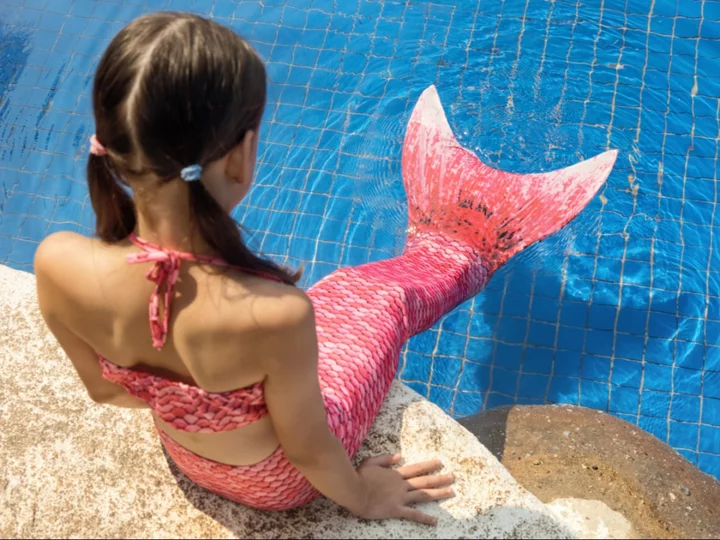
Father issues warning about mermaid tail swimsuits after five-year-old daughter almost drowns
A father has issued a safety warning about mermaid swimming outfits after his five-year-old daughter nearly drowned. Adam Lisberg initially shared the warning on Twitter in July 2020, where he’d recounted the events that led to his daughter being hospitalised for two days. According to Lisberg, the “scary story” revolved around his daughter Annabelle and her older sister Ruby, seven, both of whom “love mermaids”. “This is a scary story starring my daughter Annabelle. I’m telling it as a warning about kids, pools and swimsuits because I don’t want anyone else’s kids to end up in the ER or the ICU, like she did for two days,” Lisberg began the Twitter thread, which included a photo of his daughter in a hospital bed. In subsequent tweets, the father-of-three explained that he and his wife had ordered their daughters two-piece swimsuits with matching mermaid tails after getting an inflatable pool for the driveway. Lisberg then shared a photo of the paddling pool in question, which featured water that reached only up to the childrens’ legs. In the post, Lisberg noted that he and his wife “know to be careful” and “know kids can drown in anything” and to “watch them”. “Still, things can happen,” he wrote. According to Lisberg,the incident occurred while his daughters were playing in the pool while wearing their mermaid swimsuits and he was in the kitchen. “Sunday afternoon, the mermaids were in the pool. I was in the kitchen overlooking the pool, window open so I could hear them, looking at them every minute or two,” he wrote. “Then Ruby came inside and told me calmly that Annabelle was underwater and wasn’t moving, so she pulled her out.” Lisberg said that he looked outside to find his five-year-old daughter lying on the ground beside the pool with her arms inside her mermaid tail and “not moving”. After rushing outside, Lisberg said he picked up his daughter, who “didn’t react,” despite her eyes being “wide open”. In the emotional Twitter thread, the father then recalled hearing his daughter cough a little while questioning how long she’d been under the water and “what no oxygen to the brain looks like”. According to Lisberg, he began to perform CPR that he’d learned when his daughter was born, at which point Annabelle began to cry and cough. “Water, mucus, then vomit. This is all good,” he wrote. At this point, Lisberg revealed that he’d called 911, and that Annabelle had begun to cry but still wasn’t able to form words. The father then explained what had happened, as told to him later by his daughters. “Ruby said Annabelle pulled that mermaid tail up to her shoulders and tucked her arms inside. And as Annabelle told us later, she tried to ‘play potato’ by lying down in the water. But she couldn’t reach her hands out to get up,” he wrote. “Annabelle said she tried to talk, but the words just turned into bubbles. I will never get that image out of my head.” In the Twitter thread, Lisberg then credited his eldest daughter for saving Annabelle’s life, as the seven year old had seen that her younger sister “wasn’t coming up”, at which point she pulled the five-year-old’s head out of the water, before pulling her completely out of the pool. “She guessed Annabelle was only under for about 30 seconds,” he wrote, before adding that paramedics arrived within five minutes and measured “good blood oxygen” levels as Annabelle began to recover. However, despite spending just 30 seconds underwater, Lisberg said the five year old had to spend two days in the paediatric ICU. “Even a little water in the lungs, especially if it has chlorine, can spark a delayed reaction as the body fights injury,” he wrote. “She had a temperature and elevated pulse and breathing for almost a day after. Needed oxygen to kick it.” According to Lisberg, when Annabelle came home, she was the “same giggly bubbly silly sparkly girl she was,” with the father-of-three noting that his family is “indescribably lucky”. “I cannot imagine what it’s like to be the parent who didn’t get lucky like this,” he wrote. Lisberg concluded the Twitter thread thanking those who had read it before admitting that he hopes it “haunts” them. “So, thank you for reading this. Frankly, I hope this haunts you. I share it because I want you to never take any kids’ safety for granted, especially in water, no matter how shallow, even for a minute,” he wrote. “And maybe skip the mermaid tail. She’ll be okay without it.” According to the Centers for Disease Control and Prevention (CDC), more children ages one to four die from drowning than any other cause of death in the United States, and for children ages five to 14, drowning is the second leading cause of “unintentional injury death” after car crashes. Speaking toToday about the experience, Lisberg said that his daughters had owned similar swimsuits in the past, and that he and his wife had thought they would be safe because the pool was “two feet deep”. “Even if they sit down they can get themselves up,” he explained. He also noted that he’d been aware, like “every parent,” that you have to watch children “like a hawk and you have to be careful all the time”, but that he’d thought it would be okay for him to watch from the kitchen as he supervised his five-year-old son’s attempt to make guacamole. Lisberg also shared the fear he’d felt when he reached his daughter, with the father-of-three admitting that he’d “thought she was dead”. As for the quick response of his daughter Ruby, Lisberg described his eldest daughter’s rescue as “incredible”. “She got her sister completely out of the water. It was incredible,” he said, adding that the seven-year-old’s first instinct had been to protect her sister and “she did”. In addition to avoiding swimsuits that may obstruct a child’s ability to move, a swim instructor recently warned parents against buying blue bathing suits for their children. @scarnati.swim Just dont do it! Why think about which bathing suits for the splash pad? Just buy bright ones!! ☀️☀️ #selfrescue #selfrescueswimming #selfrescueswim #watersafety #drowningpreventionawareness #springhillisd ♬ original sound - According to Nikki Scarnati, a certified ISR (infant swimming resource) instructor who goes by the username @springhill.isr on TikTok, blue bathing suits can make it difficult to see a child underwater. The Independent has contacted Lisberg for comment. Read More Experts advise on how to stay safe while swimming in open water Children’s swim instructor issues warning about blue bathing suits Daniel Radcliffe says seeing Erin Darke become a mother is ‘most incredible thing’ Fiona Phillips target of telephone scam following Alzheimer’s diagnosis Disability Pride Month: Motor neurone disease diagnosis spurred us on to get married
2023-07-07 02:24

Daniel Radcliffe says seeing girlfriend Erin Darke become a mother is ‘most incredible thing’
Daniel Radcliffe has spoken out about the joys of raising his son with his longtime girlfriend, Erin Darke. Radcliffe, 33, opened up about becoming a father during a recent interview withE! News. His comments came days after he spoke about parenting for the first time, with the actor confirming that he welcomed a “little boy” with Darke in April. Speaking to E! News, the Harry Potter star noted that while he’s enjoyed his time with his son so far, he’s also loved seeing his partner become a parent. “It’s a crazy thing, but it’s also really beautiful, watching my girlfriend become a mum,” he said. [It’s] really the most incredible, beautiful thing to be witness to. So, it’s great.” He poked fun at how grown-up his son is, as he joked that the baby is “fully talking at three-months-old”, and is “very advanced”. The actor then clarified that his child has reached a different milestone, adding: “He’s smiling and that’s all I need. That’s awesome. Some people have to wait a lot longer for that so I’m really happy with that.” During an interview withEntertainment Tonight on 3 July, Radcliffe first revealed that he and Darke were parents to a son, who they welcomed earlier this year. He also acknowledged that he’s been taking some time off from work to focus on his family “It’s great. It’s crazy and intense,” he said about becoming a first time dad. But he’s wonderful and Erin is amazing - it’s a real privilege also to have this time with him. I was always going to take some time off, which not everyone is able to do, and so I’m able to kind of just be here with him a lot, which is lovely.” The Kill Your Darlings star noted that as his child gets older, he will probably be more considerate about how many acting projects he takes on. “It hasn’t really yet affected things, but I really like spending time with him, and I think I’m gonna miss him when I go back to work later in the year,” he said. “So, I will definitely be I think a bit more selective - not more selective, I’ve always been selective, but I think I’ll probably work a little bit less for the next few years.” However, according to Radcliffe, he doesn’t plan to leave acting anytime soon. “I’ll never be stopping. I don’t think that’s good for me either,” he added. In an interview with Newsweek, Radcliffe also opened up about starting a family while working in Hollywood. More specifically, he explained how his own experience with childhood stardom will influence how he parents his children one day. “I want my kids, if and when they exist... I would love them to be around film sets,” he said. “A dream would be for them to come onto a film set and be like ‘God, you know, I’d love to be in the art department. I’d love to be something in the crew.’ Some part of this, but not from that.” The Weird: The Al Yankovic Story star added that even though he enjoys acting himself, he “wouldn’t want fame for [his] kid”. “I think if you can get a situation where you’re on film sets without necessarily [thinking] oh, this is gonna be a big deal in your life, that’s great,” he said. “Film sets are wonderful places. I think a lot of the time it can be wonderful for kids. But it’s really the fame side of it that should be avoided at all costs.” While he recently opened up about fatherhood, Radcliffe has not yet revealed what the name of his new baby is. This doesn’t necessarily come as a surprise, since he and Darke, who’ve been dating since 2012, kept the news of their pregnancy relatively private. Read More Daniel Radcliffe gives frank answer to possibility of joining Harry Potter series Daniel Radcliffe opens up about fatherhood for the first time Daniel Radcliffe shares feelings about new actor playing Harry Potter Daniel Radcliffe opens up about fatherhood for the first time Fiona Phillips target of telephone scam following Alzheimer’s diagnosis Disability Pride Month: Motor neurone disease diagnosis spurred us on to get married
2023-07-07 01:23
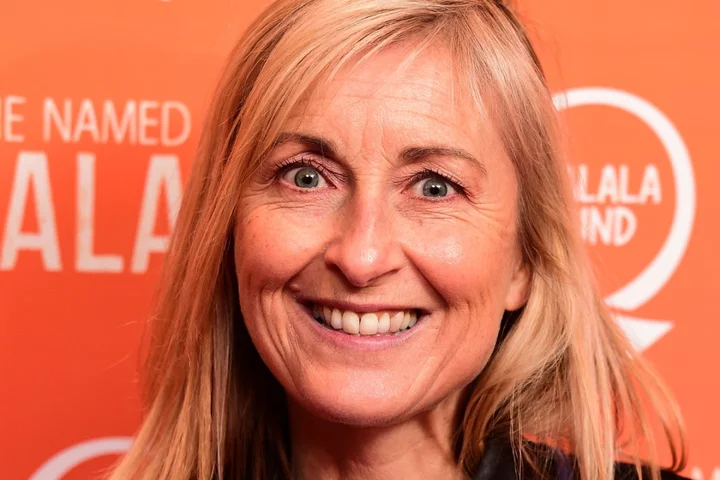
Fiona Phillips target of telephone scam following Alzheimer’s diagnosis
Fiona Phillips found herself to be the victim of a telephone scam following her Alzheimer’s diagnosis. The former breakfast TV presenter, 62, was told she had the condition 18 months ago after she experienced symptoms of anxiety and brain fog, and has since disclosed her diagnosis to the public. Phillips, who is currently taking part in a drug trial that scientists hope could revolutionise the treatment of the incurable illness, has spoken out about an experience where she was scammed over the phone. In a new interview with The Mirror, Phillips explained she was scammed by a person who called her and managed to take money out of her bank account. The publication reports that Phillips was scammed out of “thousands” of pounds but was refunded by her bank. The journalist, best known for presenting the ITV breakfast programme GMTV, told The Mirror that she was reluctant to tell her two sons, Nat, 24, and Mackenzie, 21 – who she shares with her husband, This Morning boss Martin Frizell – about her condition. “I just didn’t want to make a big thing out of it where we all sit down as a family and announce we’ve got something to tell them,” she said. “And I was worried they might be embarrassed in front of their friends or treat me in a different way. And it’s not like I’m doing anything out of character.” Symptoms of Alzheimer’s include memory problems, like forgetting about recent conversations or events or becoming increasingly disorganised. Others include language problems, changes in mood or spatial awareness. It is typical that family members, friends and work colleagues may notice these changes first, often before the person themselves. Phillips, who took part in BBC’s Strictly Come Dancing in 2005, shared that she and Frizell had blood tests to check whether their children could inherit the disease. “We wanted to know in case we needed to prepare the boys to make some difficult decisions later in life,” Frizell told the publication. “When the results came back as negative, it was a huge moment – such an enormous sense of relief. There’s no Alzheimer’s on my side of the family and thank goodness it seems the boys have not inherited from Fiona’s side of the family.” Read More Woman exits plane after tirade about passenger who is ‘not real’: ‘Final Destination vibes’ The Barbie press tour has finally rescued Margot Robbie’s red carpet reputation Fans mistake Jennifer Garner and Ben Affleck’s daughter Violet, 17, for her mother in new photos This is the lesser-known symptom of Alzheimer’s that could affect drivers The shared symptoms of menopause and young onset dementia Fiona Phillips Alzheimer’s diagnosis at 62: 7 ways to reduce your risk
2023-07-06 21:22
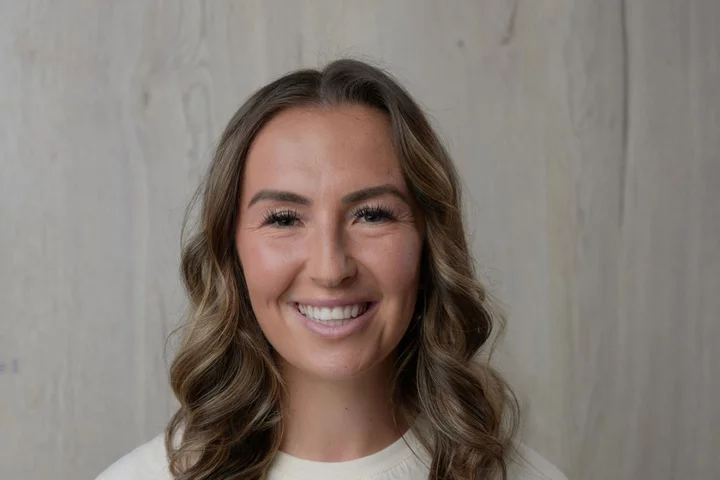
Lioness Katie Zelem: Nerves are good – it’s just about channelling them the right way
Manchester United star Katie Zelem wants one thing if England win the World Cup: Oreo milkshakes. “After games, I like to have an Oreo milkshake. That’s my go-to thing – so simple and easy, but I just love it. So, if we win, I will have a lot of Oreo milkshakes,” Zelem, 27, says with a laugh. But if Oreo milkshakes are Zelem’s top priority after she’s played, what fuels her before a match? “Before games, I’ll always eat pasta. I lived in Italy for a year, so pasta is one of my favourite things and [living in Italy] really gave me inspiration for different types, rather than just the basic stuff.” Training for a major tournament is no small feat, and combined with nutrition, camp before the tournament will be intense.“Obviously, people are all at different stages of [fitness]; some finished the league a bit earlier, and some played more minutes than others, so it’s about getting on the same page, and then ramping it up. It’ll be running, training, gym, everything you can think of.” Facing disappointment when she was not selected for the Euros team, the fresh Lioness has worked hard to get the call-up.“Last year, with the Euros, it didn’t quite go to plan, so I’m so proud of the season I’ve had. We’ve got our rewards by being selected to represent England at a World Cup,” Manchester-born Zelem divulges. “My first major tournament and I’m so excited.” But waiting for the news as to whether she would be heading to Australia and New Zealand, where the Women’s World Cup is taking place this summer, was nerve-wracking. Zelem didn’t want to miss her shot again. “I was actually at home, waiting,” she says. We knew we were going to get a FaceTime call, so it was an anxious morning for everyone.” Heading to her first World Cup, there are bound to be some nerves. “It is a good thing to feel nervous. You’re out. You’re at a World Cup. It should be a little bit nerve-wracking, playing with and against the best players in the world. Nerves are good. It’s just about channelling them in the right way,” Zelem adds calmly. Zelem is looking forward to being reunited with legendary Lioness, fellow midfielder and Barcelona player, Keira Walsh. “I do love joining up with the girls and playing with everyone, but Keira Walsh is a really good friend of mine and I have known her for about 15 years. We played together at the youth age groups a lot, we have done a lot of training camps in England,” the footballer explains. “She moved, and went from being on the doorstep to a totally different country. So, there’ll be a nice reunion at our first major tournament together.” Of course, there will be some noticeable players missing in Beth Mead and Leah Williamson, as ACL injuries have ravaged teams all over the world this season. “One or two is unlucky, but I think so many is just crazy. It certainly needs to be looked at – whether it’s our training load or the changes in play in minutes. As you see the women’s game rise and grow, the expectations become to play more games and have less recovery,” Zelem notes. It means the Lionesses of the Euros have had a shake-up. The new squad is missing its captain and top scorer, but Zelem and the rest of the team are still dreaming of World Cup victory. Katie Zelem, England Lioness and Manchester United Captain, is the brand ambassador for the healthy recipe box service Green Chef which is all about healthy living, your way.
2023-07-06 17:23

This is the lesser-known symptom of Alzheimer’s that could affect drivers
As revealed by TV presenter Fiona Phillips this week, anxiety and brain fog could be symptoms of Alzheimer’s disease – but people are being warned of another lesser-known symptom that could affect drivers the most. It comes after the former breakfast TV host, 62, spoke publicly for the first time about her Alzheimer’s disease diagnosis, which she received 18 months ago. Phillips, who is currently taking part in a drug trial that is hoped could revolutionise treatment for the illness, said she wishes to end the stigma surrounding Alzheimer’s. According to the Alzheimer’s Association, one of the symptoms that could be related to the onset of the disease is trouble understanding visual images and spatial relationships. It said: “For some people, having vision problems is a sign of Alzheimer’s. This may lead to difficulty with balance or trouble reading. “They may also have problems judging distance and determining colour or contrast, causing issues with driving.” This is not the same as having vision problems or changes related to cataracts, which is a typical age-related change. Other early signs and symptoms highlighted by the organisation include memory loss that disrupts everyday activities, such as forgetting information that one only recently learned; experiencing challenges in planning or solving problems; having difficulty taking tasks that are usually familiar; and losing track of dates, seasons or the passage of time. People living with Alzheimer’s may also develop new problems with words in speaking or writing, and may have trouble following or joining a conversation. Misplacing objects and losing the ability to go over their steps to find something is also a common sign of early disease, as is poorer judgement and withdrawal from work or social activities. Phillips said she began to realise something was wrong when she developed “crippling anxiety” towards the end of 2021 and initially thought it was related to menopause. She was put on HRT to treat menopause symptoms, which led to some improvement, however, Phillips’ “brain fog remained”, her husband Martin Frizell said. After months of cognitive tests and a lumbar puncture to asses spinal fluid, Phillips was diagnosed with Alzheimer’s disease. She told The Mirror: “This disease has ravaged my family and now it has come for me. And all over the country there are people of all different ages whose lives are being affected by it – it’s heartbreaking. “I just hope I can help find a cure which might make things better for others in the future.” She is taking part in a medical trial at University College Hospital (UCH) for a drug called Miridesap, which is administered three times a day with tiny needles. Scientists hope the drug can slow or even reverse the disease. Phillips added: “There is still an issue with this disease that the public thinks of old people, bending over a stick, talking to themselves. “But I’m still here, getting out and about, meeting friends for coffee, going for dinner with Martin and walking every day.” In 2022, dementia and Alzheimer’s were named by the Office for National Statistics as the leading cause of death in the UK. Last year, they accounted for 65,967 deaths, up from 61,250 the year before. Read More The Barbie press tour has finally rescued Margot Robbie’s red carpet reputation Woman exits plane after tirade about passenger who is ‘not real’: ‘Final Destination vibes’ Fans mistake Jennifer Garner and Ben Affleck’s daughter Violet, 17, for her mother in new photos
2023-07-06 16:24

Disability Pride Month: Motor neurone disease diagnosis spurred us on to get married
Getting married wasn’t “on the books” for London couple Craig Pollard and Alex Herd for a long time. But that changed when Alex got diagnosed with motor neurone disease (MND) in 2021, aged 30. “We decided to get married as a bit of a consequence of Alex’s diagnosis,” explains Pollard, 35. “It wasn’t something that was on the books for us before, especially as being gay, marriage wasn’t available to us when we were younger, so wasn’t necessarily something we’d aspired to. “But then thinking about the legacy we wanted and how much time we had together, we saw it as a good way of bringing our families together and celebrating something really positive in our life.” MND affects nerves in the brain and spinal cord which send signals to muscles. There is currently no cure, so as muscle loss gets worse over time – affecting movement, speech, swallowing and breathing – it eventually leads to death. It’s uncommon and mostly affects people in their 60s and 70s, although as Herd’s diagnosis shows, MND can occur in younger adults too. The charity Challenging MND, which helps people with MND, has the ‘opportunity to create amazing memories’, funded the couple’s big day last year – a fabulous festival-inspired party officiated by drag queen Just May from RuPaul’s Drag Race UK Season 4. They had already been together for a decade, so the wedding was a “celebration of all the things we’ve enjoyed together over the last 10 years”, Pollard notes (plus “lots of glitter and sparkle – it was perfect”). It was also the last time Herd went a full day without using a wheelchair. “So it was the very last moment we possibly could have done that,” adds Herd, now 32. “And we can look back at that as a really special day.” He first started noticing symptoms in early 2021 – muscle twitching then weakness in his hands and arms, before his legs became increasingly affected. Herd used a manual wheelchair for a while but recently switched to an electric one. “That’s changed my life quite a lot,” says Herd. “While I was in the manual wheelchair and Craig was pushing around, I sort of felt like I didn’t really exist anymore, because everyone would interact with him, and I wasn’t responsible for where I was. But now I’m in control of my movement, I feel like I’m more interacting with people myself.” The diagnosis has been challenging on multiple levels, individually and as a couple. MND doesn’t present with exactly the same patterns for everyone – so there is no guidebook as such, and navigating support services relies on a lot of self-advocating. Things such as specialist physiotherapy and occupational therapy can be helpful, along with home adaptations. “Having MND, you have to get used to things changing,” says Herd. “I mean, I can’t necessarily relate at this point to someone who’s been in their wheelchair for their whole life, but because things keep changing, you can’t really get used to it properly. So it’s very difficult for me to kind of keep hold of my identity.” In a recent survey, Challenging MND found 63% of people living with the MND had felt marginalised or ‘othered’ because of their condition, while 51% felt others see MND as their identity. In addition, 80% said they felt isolated, and 69% worry about being a burden to their family. Feeling ‘othered’ is something Alex found himself thinking about while attending Pride London recently. “It’s almost more like something I’m doing, than something other people are doing – because I’m seeing people doing what I would’ve been doing a year ago, it’s still fairly fresh for me, so I’m still comparing the before and after,” he reflects. “At Pride, lots of people get to see themselves represented in the crowds, and that’s nice. But then I realised how much more of a minority people in wheelchairs are. It made us realise how different our situation is now, our priorities and expectations in general.” Music has been an important way for him to stay connected with his identity. “I’ve been making music for over 10 years, so it’s nice I’m still able to do that. I think as much as possible, people in a situation like this need to try and keep doing the things that made them happy before,” he says. While he can no longer play his guitar, Herd made voice recordings to use an instrument and creates tracks on his computer, using foot pedals as he can no longer click the mouse. Since his diagnosis, he’s actually been finishing a lot more songs. “I have less distractions now!” Herd quips. “But using music as a communication tool, that’s definitely become more important to me.” Challenging MND also supported the couple with a trip to Eurovision – “which was really touching and we made great memories”, says Pollard. They’re also grateful to support from the Motor Neurone Disease Association, who provides a local area liaison, and their local St Christopher’s Hospice has been “really helpful”. These things make a huge difference. “Something I’m very conscious of as an able-bodied person is watching Alex have to come to terms with first of all being disabled, then being visibly disabled, and then being disabled in public – there’s been a lot of different elements we’ve had to really tackle,” Pollard reflects, citing navigating public transport as one of the main everyday challenges. There’s an emotional toll too. “My energy levels are a lot lower than they used to be, and my capacity for stress. I feel like I already have this much higher baseline of anxiety about various things, so it feels much easier to become overwhelmed,” says Herd. “I think the only thing we can really do is just try and focus on the next thing, rather than worrying about everything.” As members of the LGBTQ+ community, there are sometimes other nuances to their experiences. They’ve noticed LGBTQ+ events are doing well with accessibility, but representation can be a more subtle matter. “There’s definitely an element of the community who are very mindful of others and very empathetic, which I think has been where I’ve learned a lot about different people’s experiences in my life,” says Pollard. “But when it comes to the overall society of the community, I think there’s still a large proportion of it based on image, based around being cool and trendy. So it’s quite easy for people with accessible requirements to be kind of ignored in that space.” As for their experiences in public, Craig says: “We have struggled to feel like we can take up space. First of all being LGBT, we often don’t feel that safe in certain spaces, public transport we’ve had trouble on once or twice in the past, so you’re always a bit uneasy. With moving into being more visibly disabled and needing more accessible requirements, that’s something we’ve to discuss and manage.” Thanks to Challenging MND, the couple are banking up the joyful times. “They offered to support our wedding, which was really special, and without them we probably wouldn’t have had it,” says Pollard. “That isn’t just a memory for us, it’s a memory for our families and friends too. It was really special.” Challenging MND aims to support and empower those living with MND to create lasting memories for themselves and their families. To date they’ve granted in excess of £1.1million and supported over 100 families.
2023-07-06 16:22
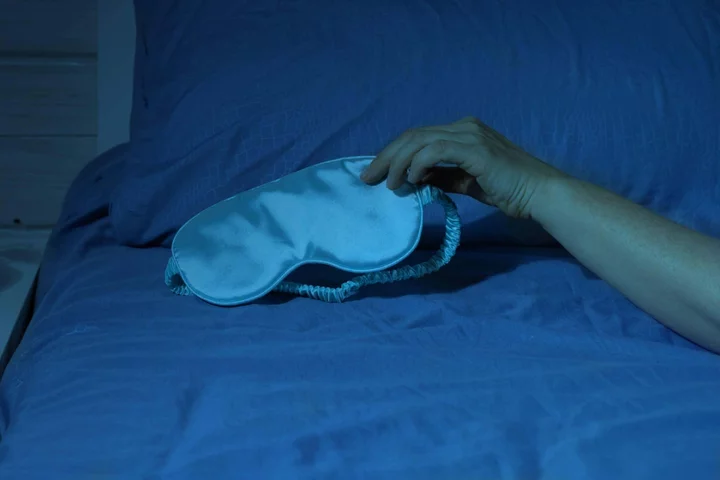
Middle-aged people who skip on sleep won’t see cognitive benefits of exercise
Middle-aged people not getting enough sleep are less likely to see the benefits of exercise when comes to protecting against decline in skills such as memory and thinking, scientists have said. Researchers from University College London (UCL) found that those in their 50s and 60s who performed regular physical activities but slept less than six hours a night had a faster decline in these skills overall. The team found that after a decade, their cognitive functions – such as attention, memory and learning – were the same as those who did less physical activity. The researchers said their study, published in journal The Lancet Healthy Longevity, highlights the need for sleep to protect against cognitive decline as people get older. Lead author Dr Mikaela Bloomberg, of UCL Institute of Epidemiology & Health Care, said: “Our study suggests that getting sufficient sleep may be required for us to get the full cognitive benefits of physical activity. “It shows how important it is to consider sleep and physical activity together when thinking about cognitive health. “Previous studies examining how sleep and physical activity might combine to affect cognitive function have primarily been cross-sectional – only focusing on a snapshot in time – and we were surprised that regular physical activity may not always be sufficient to counter the long-term effects of lack of sleep on cognitive health.” The World Health Organisation already identifies physical activity as a way to maintain cognitive function, but interventions should also consider sleep habits to maximise long-term benefits for cognitive health Prof Andrew Steptoe For the study, the team looked at data from the English Longitudinal Study of Ageing (Elsa) from nearly 9,000 people aged 50 and over. Their cognitive function was assessed over a period of 10 years with various memory and verbal fluency tests. Questionnaires were also used to assess how long they slept and whether this was less or more than six hours. People were also asked about their levels of physical activity. At the start of the study, those who were more physically active also had better cognitive function regardless of how long they slept. However, this changed over the 10-year period, with more physically active short sleepers in their 50s and 60s experiencing more rapid cognitive decline, the researchers said. But for people aged 70 and over, the benefits of exercise on cognitive function were maintained, despite short sleep, the team added. Co-author professor Andrew Steptoe, of UCL Institute of Epidemiology & Health Care, said: “It is important to identify the factors that can protect cognitive function in middle and later life as they can serve to prolong our cognitively healthy years and, for some people, delay a dementia diagnosis. “The World Health Organisation already identifies physical activity as a way to maintain cognitive function, but interventions should also consider sleep habits to maximise long-term benefits for cognitive health.” Read More 8 best kids’ bunk beds that are fun and functional Nurture your health and wellbeing this season The best holidays to book for August, from beach breaks in Portugal to stays on an Italian lake More travelers get cozy with glamping, even amid high costs People who sleep very late may die earlier due to unhealthy habits, study says
2023-07-06 13:28
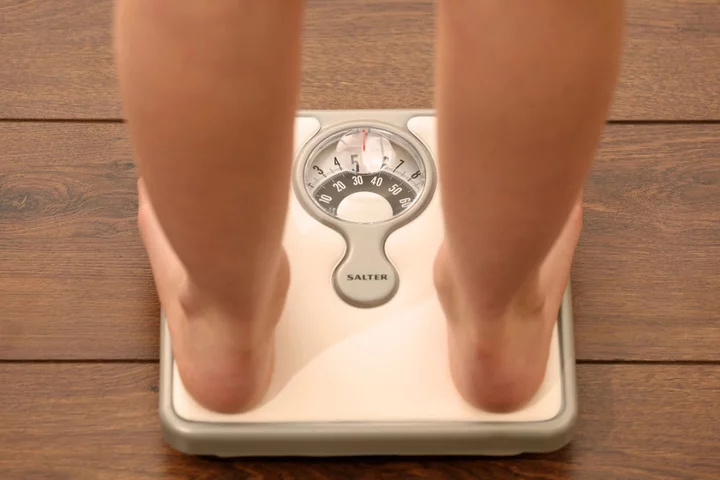
Being overweight ‘linked to 18 cancers’ in under-40s
Being overweight as a young adult can increase the risk of developing 18 cancers – more than have been previously linked with the disease, researchers found. Previous studies have shown that people who are overweight or obese have a heightened risk of a number of different cancers including breast, bowel, kidney and pancreatic. Now excess weight has also been linked to leukaemia, non-Hodgkin lymphoma, and among never-smokers, bladder and head and neck cancers in a large new study. The authors said these cancers have not previously been “considered as obesity-related cancers”. Our findings support public health strategies for cancer prevention focusing on preventing and reducing early overweight and obesity Study authors And that the impact of obesity on cancer is “likely underestimated”. The new study, published in Nature Communications, saw researchers examine data on more than 2.6 million Spanish adults aged 40 and under who were cancer-free in 2009. Researchers examined the body mass index (BMI) scores throughout the lifetime of people involved with the study, saying that previous research investigating the link between weight and cancer has used single BMI scores. The people in the study were tracked for nine years to see whether they developed cancer. Some 225,396 were diagnosed with cancer during the period studied. The Spanish researchers found that those who were overweight or obese in early adulthood – aged 40 and under – appeared to have an increased risk of cancer. Those who were overweight or obese for a longer period also appeared to have a higher risk. Our own evidence shows that maintaining a healthy weight throughout life is one of the most important things people can do to reduce their cancer risk, and early prevention in adulthood is key Dr Heinz Freisling, one of the study’s co-leaders Overall, some 18 cancers were linked to excess weight. The authors wrote: “This study shows that longer duration, greater degree, and younger age of onset of overweight and obesity during early adulthood are positively associated with risk of 18 cancers, including leukaemia, non-Hodgkin lymphoma, and among never-smokers, head and neck, and bladder cancers which are not yet considered as obesity-related cancers in the literature. “Our findings seem to indicate that longer exposures to overweight and obesity (with or without accounting for the degree of overweight and obesity), as well as developing overweight and obesity at younger ages in early adulthood might increase cancer risk. “Our findings support public health strategies for cancer prevention focusing on preventing and reducing early overweight and obesity.” Dr Heinz Freisling, from the International Agency for Research on Cancer and one of the study’s co-leaders, said: “The results of our study support a re-evaluation of the cancer burden associated with overweight and obesity, which currently is likely underestimated.” Commenting on the study, Dr Panagiota Mitrou, director of research, policy and innovation at World Cancer Research Fund, said: “This large study has future public health implications since additional cancers, such as leukaemia and non-Hodgkin lymphoma, have been shown to be linked with overweight and obesity. “Our own evidence shows that maintaining a healthy weight throughout life is one of the most important things people can do to reduce their cancer risk, and early prevention in adulthood is key.” Read More Study says drinking water from nearly half of US faucets contains potentially harmful chemicals Up to 10,000 Britons could take part in cancer vaccine trials People with signs of bowel cancer should be offered a £5 ‘poo test’ before invasive bowel investigations Nurture your health and wellbeing this season What diet drinks don’t have aspartame in them?
2023-07-06 13:21
